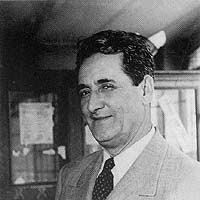We have decided to create the most comprehensive English Summary that will help students with learning and understanding. You can also reach A Letter to God NCERT Solutions to score more marks.
A Letter to God Summary in English by Gregorio Lopez y Fuentes
A Letter to God by Gregorio Lopez y Fuentes About the Author
| Author Name | Gregorio Lopez y Fuentes |
| Born | 17 November 1895, Veracruz, Mexico |
| Died | 10 December 1966, Mexico City, Mexico |
| Nationality | Mexican |
| Movies | El Indio, The Marble Colossus |

A Letter to God Summary in Enlgish
‘A Letter to God’ is a story of a farmer’s extreme faith in God. The writer G.L. Fuentes has tried to depict the faith of a poor and simple farmer in God in an impressive manner. Lencho was an honest and hardwork¬ing farmer. He was shocked to notice that his crop was ruined in a hailstorm. He turned to God for getting some help. He wrote a letter to God. On Sunday, he posted the letter. When an employee of the post office chanced to see the letter addressed to God, he made fun of the man who had written that letter but his boss, the postmaster was a serious man and did not take the letter lightly. He was impressed by the extreme faith of the man and wished to have the same faith. He decided to answer the letter.
He collected money from his employees to give in charity to the needy farmer. He was able to collect only seventy pesos and thought that the farmer would be glad to receive the money. But to his utter disappointment, the postmaster was shocked to notice that it had made Lencho angry, who wrote another letter to God but with a warning not to send the money by post as he considered the postal employees ‘a bunch of crooks’ who had stolen thirty pesos from the hundred pesos sent by Him.
A Letter to God Summary Questions and Answers
Question 1.
(i) Where was ‘the house’ located?
(ii) Why do you think it is called ‘the’ house and not ‘a’ house?
Answer:
(i) The house was located on the top of a low hill.
(ii) It is called ‘the house’ because it is the only house on the top of the hill.
Question 2.
Why did Lencho keep gazing at the sky?
Answer:
Lencho knew that his fields needed water immediately. He was eagerly waiting for the rain, therefore he gazed at the sky.
Question 3.
“Now we’re really going to get some water, woman.” Is Lencho sure that it is going to rain? Give a reason for your answer.
Answer:
Lencho was sure that it was going to rain because he kept watching the sky throughout the day. Through his experience, he knew that the clouds would certainly bring rain.
Question 4.
(i) How did Lencho feel when it started raining?
(ii) What was the effect of the rain on the crops?
Answer:
(i) Lencho was excited when he came out of his house to have the pleasure of feeling the rain on his body. He compared the raindrops with coins, as he knew that a good rain would mean a good crop and a good crop would mean a lot of money.
(ii) The rain brought with it destruction. There was hailstorm for about an hour and it covered the field. The corn was totally destroyed.
Question 5.
What are the raindrops compared to and why?
Answer:
Raindrops are compared to coins. He compares big raindrops to ten-cent coins and smaller ones to five-cent coins. He knew that the raindrops would certainly be helpful in giving him rich harvest. Naturally, it would make him get more money.
Question 6.
Lencho had only ‘one hope’. What was it?
Answer:
Lencho was a God-fearing man and had a firm faith in the benevolence of God, who he thought would certainly help him. God was his only hope.
Question 7.
Did the letter reach God? Why did the postmaster send a reply to Lencho?
Answer:
The letter did not reach God but it certainly reached the postmaster who was a God-fearing and kind-hearted man. He decided to send a reply to Lencho as he was moved by the firm faith of a farmer in God, and he did not want to disappoint him.
Question 8.
Lencho describes the post office employees as ‘a bunch of crooks’.
(i) Were they ‘a bunch of crooks’?
(ii) How would you describe them?
Answer:
(i) The post office employees were really very good people who tried to help a poor farmer. They were not a bunch of crooks.
(ii) They can be described as kind-hearted, generous, helpful and God-fearing men.